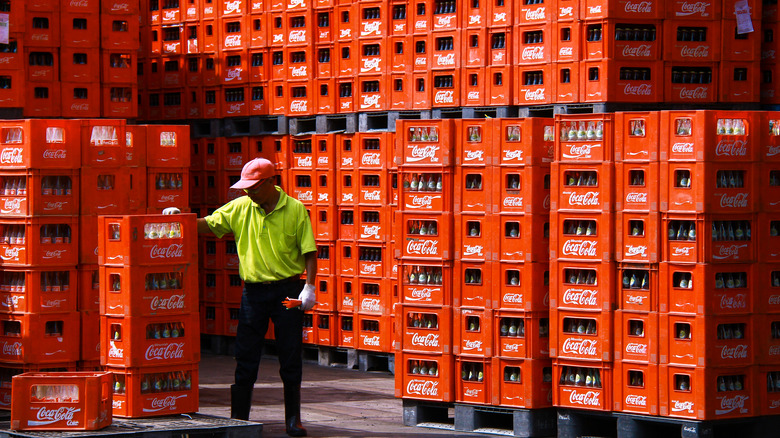The Two Places You Won't Find Coca-Cola
Coca-Cola claims that its products are sold in over 200 countries — which sounds like a feat, considering there are only 195 recognized countries in the world. Although Coca-Cola originated in the U.S., Uncle Sam is not the non-boozy beverage company's biggest customer. Ironically, the number one consumer of Coca-Cola products is our southern neighbor, Mexico, with the average Mexican consuming 634 eight-ounce servings per year.
This statistic is likely not influenced by geography — Coca-Cola has long since surpassed those boundaries to become a symbol of American culture, taste, and economy abroad. It has become such a prominent feature internationally that even the countries lacking essential things like reliable running water still have access to Coke, per Forbes.
Coca-Cola has done nothing but flourish and remain in a state of growth. Its gross profit for the second quarter of 2022 was $6.495 billion (up by more than 2%), and its gross profits for the four previous quarters amounted to $24.336 billion, per Macro Trends.
Sweet Diplomacy
The iconic red and white can represents at least a basic form of diplomacy between the United States and the rest of the world. Be this as it may, there are two countries where the said Coke container is obscure — if not non-existent — and as a testimony to this, neither of these states have the best relationship with Uncle Sam.
Diplomacy between North Korea and the United States is icier than a well-made Cuba Libre at the moment, and fraught with sanctions. Additionally, the country's ongoing self-isolation prevents the entry of Coca Cola into its markets. Instead, the state hawks a knock-off that looks and even tastes similar, per Associated Press News.
Closer to home, when the Coca-Cola brand was still in its infant stages, one of their first international expeditions was to set up shop in Cuba. This transpired in 1906, but over 50 years later, Fidel Castro's government began to take over private assets. Coca-Cola cut its losses and left, never to return, per BBC.

